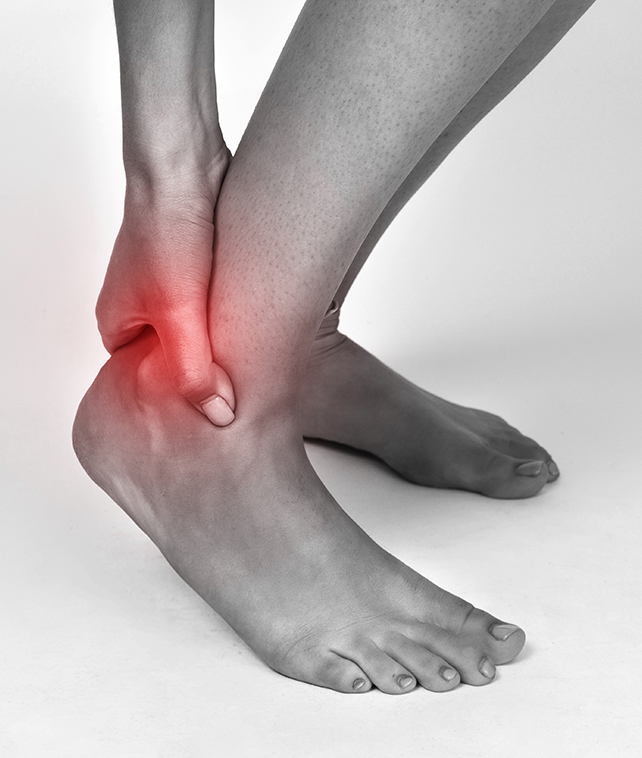
Achilles Tendonitis is a common condition that affects the Achilles tendon, the thick band of tissue that connects the calf and soles muscles to the heel bone. It is most often caused by overuse or repetitive strain and can occur in athletes and non-athletes alike. In this blog post, we will discuss the symptoms, diagnosis, and treatment options for Achilles Tendonitis.
What is Achilles Tendonitis?
Achilles Tendonitis is a condition that occurs when the Achilles tendon becomes inflamed. The inflammation can cause pain, stiffness, and swelling in the affected area. It is usually caused by repetitive strain or overuse, such as frequent running or jumping. Other factors that can contribute to the development of Achilles Tendonitis include poor footwear, tight calf muscles, and sudden changes in physical activity.
Symptoms of Achilles Tendonitis
The symptoms of Achilles Tendonitis can vary from person to person, but typically include:
- Pain and stiffness in the back of the heel or calf, particularly after physical activity
- Swelling and tenderness in the affected area
- Difficulty flexing the foot or pointing the toes
- A popping or snapping sound at the time of injury
Diagnosis of Achilles Tendonitis
If you are experiencing symptoms of Achilles Tendonitis, it is important to seek medical advice from one of our Podiatrists so we can efficiently and accurately diagnose what has happened. Diagnosis of the condition typically involves a physical examination of the affected area, as well as imaging tests such as an ultrasound or MRI scan.
Risk factors for Achilles Tendonitis
There are several factors that can increase a person’s risk of developing Achilles Tendonitis. These include:
- Age: Achilles Tendonitis is more common in people over the age of 30.
- Sex: Men are more likely to develop Achilles Tendonitis than women.
- Physical activity: Participating in activities that involve repetitive strain on the Achilles tendon, such as running and jumping, can increase the risk of developing the condition.
- Footwear: Wearing shoes that do not provide adequate support can contribute to the development of Achilles Tendonitis.
- Other medical conditions: Certain medical conditions, such as obesity and diabetes, can increase the risk of developing Achilles Tendonitis.
Treatment options for Achilles Tendonitis
Treatment for Achilles Tendonitis typically involves a combination of rest, rehabilitation, and medication. Depending on the severity of the condition and how long you have had symptoms, treatment options may include:
- Rest: Reducing or avoiding physical activity that puts strain on the Achilles tendon can help to reduce inflammation and pain.
- Physical therapy: Stretching and strengthening exercises can help to improve flexibility and reduce the risk of future injury.
- Medication: Over-the-counter pain relief medication such as ibuprofen can help to relieve pain and inflammation.
- Orthoses / Boot: The prescription of orthoses or an airiest boot can help to offload the achilles tendon and reduce pain.
- Laser Therapy: Class 4 MLS Laser can dramatically reduce pain and inflammation in the area potentially reducing recovery times.
- Shockwave Therapy: In chronic conditions shockwave therapy is an evidence based treatment for Achilles Tendonitis which can reduce pain and recovery time.
- Injection Therapy: The use of Ostenil Tendon (Hyaluronic Acid) can help to reduce pain and speed up recovery of Achilles Tendonitis.
- Surgery: In severe cases, surgical intervention may be required to repair or remove damaged tissue.
Prevention of Achilles tendonitis
There are several steps you can take to reduce your risk of developing Achilles tendonitis. These include:
- Wearing shoes that provide adequate support and cushioning
- Gradually increasing the intensity of physical activity to avoid sudden strain on the Achilles tendon
- Stretching and warming up properly before physical activity
- Incorporating strength and flexibility exercises into your workout routine
- Maintaining a healthy weight to reduce strain on the lower limbs
Conclusion
Achilles Tendonitis is a common condition that can cause pain and discomfort in the lower limbs. If you are experiencing symptoms of Achilles Tendonitis, it is important to seek medical advice from our Podiatrists. With the right treatment and preventative measures, you can reduce your risk of developing this condition and maintain optimal foot health. To Book an appointment with our MSK Sports Podiatrist Click Here.
